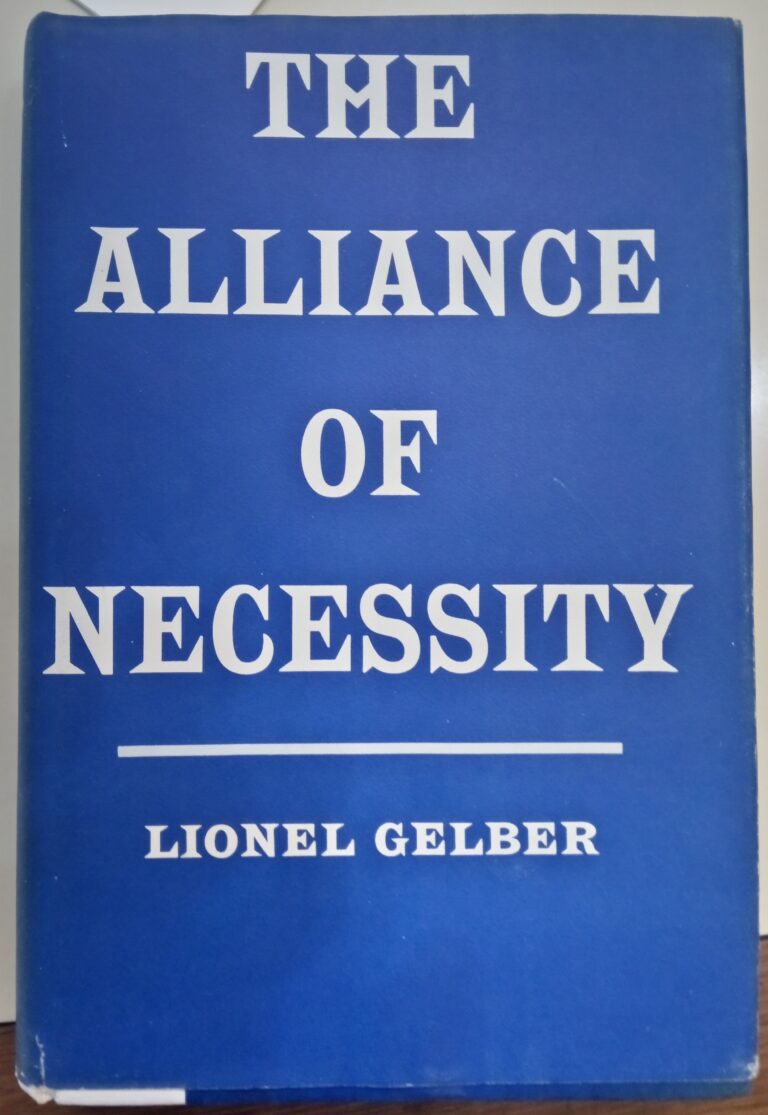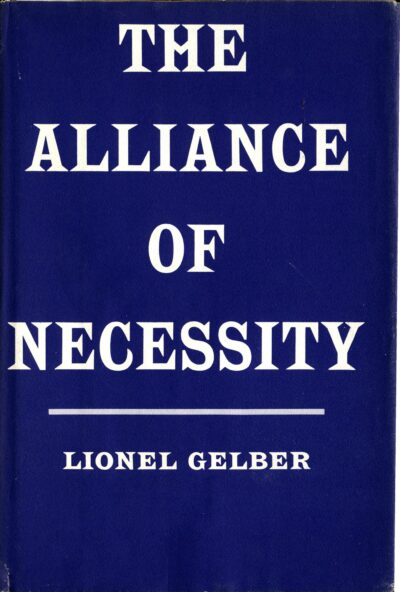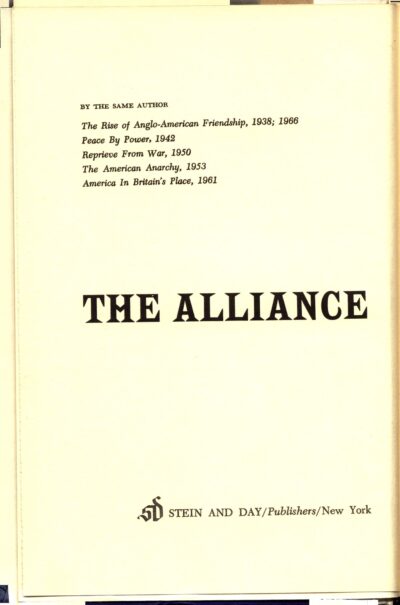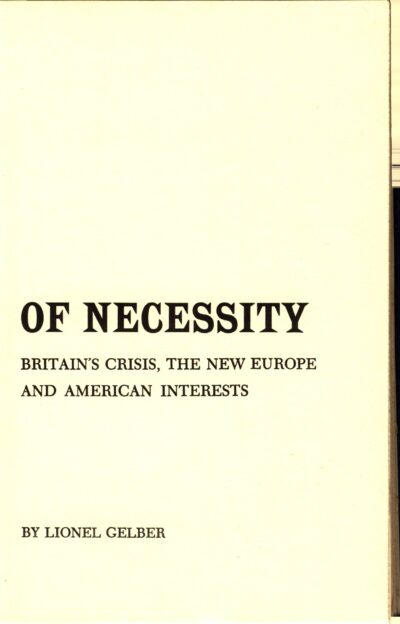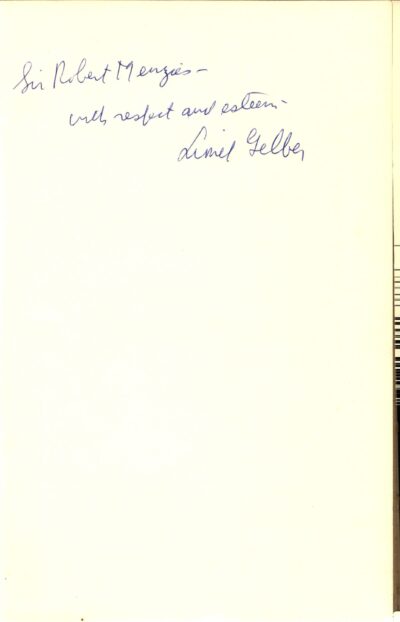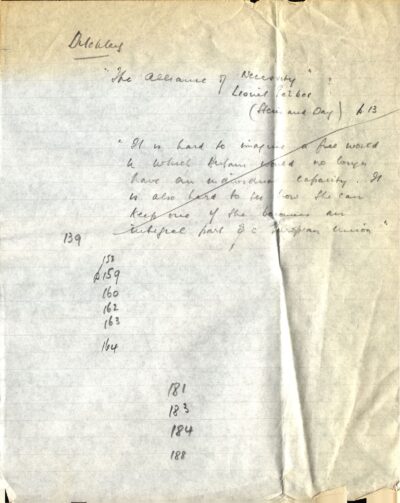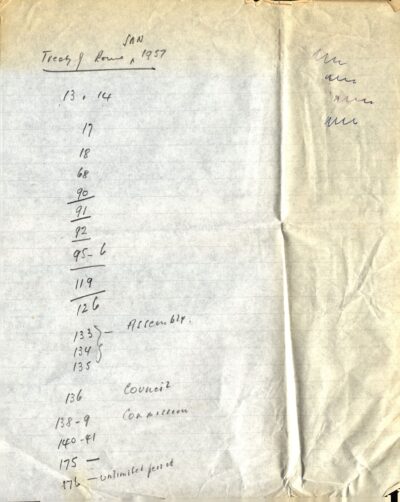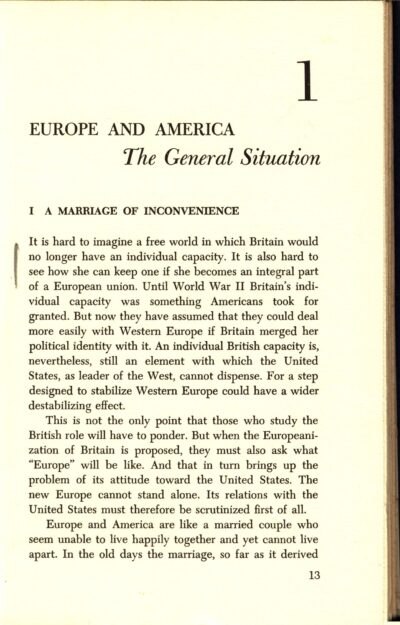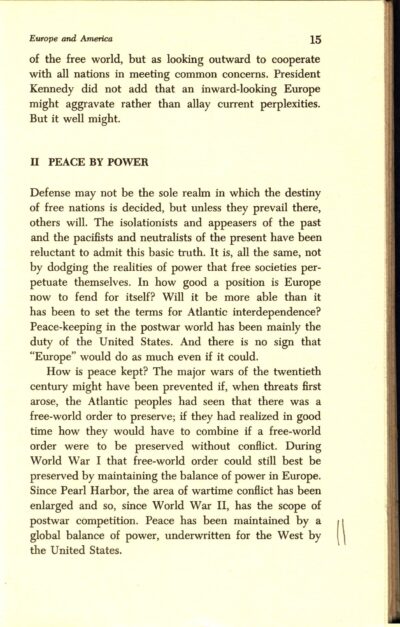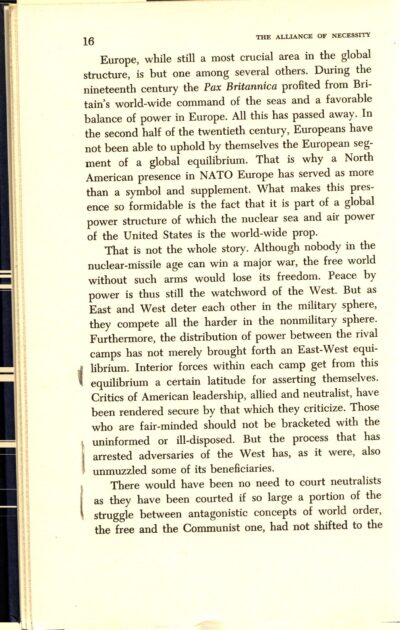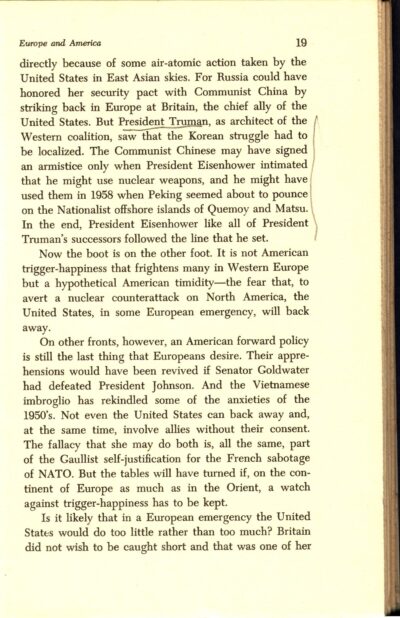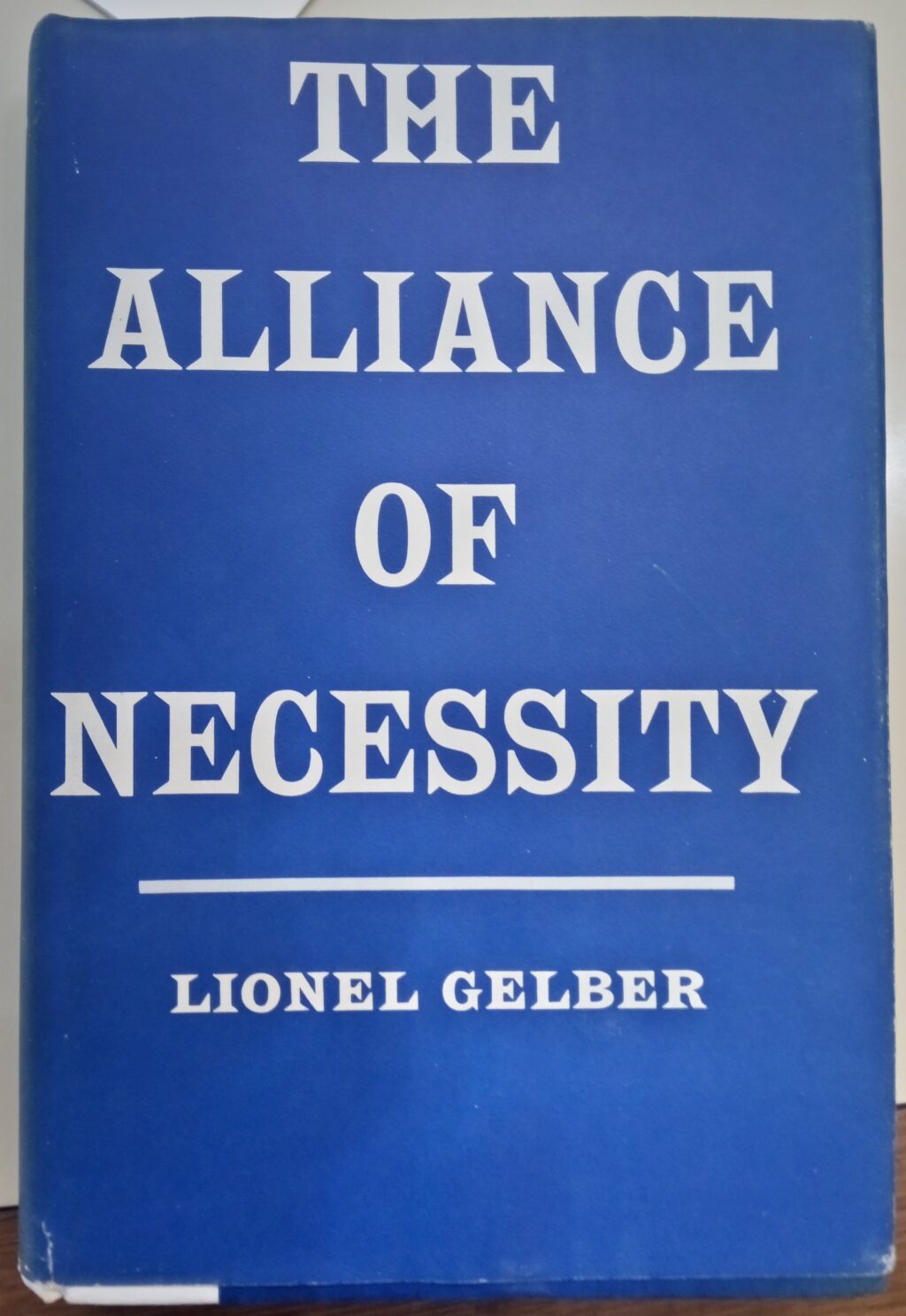Lionel Gelber, The Alliance of Necessity: Britain’s Crisis, the New Europe and American Interests (1966)
Lionel Gelber was a Canadian diplomat, historian and foreign relations expert, who in 1989 founded the Lionel Gelber Prize. The prize is awarded annually to ‘the world’s best non-fiction book in English (or English translation) on foreign affairs that seeks to deepen public debate on significant international issues’, and it is considered to be the most prestigious award any foreign affairs author can win.
Born to a Jewish family in Ontario Canada, Gelber graduated from the University of Toronto and won a Rhodes scholarship to study at Balliol College, Oxford on the back of his first book The Rise of Anglo-American Friendship: a Study of World Politics 1898 to 1906. The book covered what was to be a central theme of Gelber’s work, namely the rise of American hegemony and its meaning for the Anglosphere.
Over the years Gelber developed substantial connections in Britain, becoming friends with Foreign Secretary and later Prime Minister Anthony Eden, and an ardent admirer of Winston Churchill. As a proud Zionist, in the 1940s Gelber served as an adviser to the Jewish Agency for Palestine, which successfully advocated the formation of the state of Israel. In 1960 Gelber was appointed as special assistant to Canada’s Conservative Prime Minister John Diefenbaker, and this is likely how Robert Menzies came to know him.
The Alliance of Necessity was Gelber’s response to the rise of the European Economic Community (EEC), the forerunner to the European Union. Gelber’s thesis was one of euro-scepticism, arguing that the United States and Britain needed each other more that the US needed Britain in Europe. ‘Europeanization’ he argued, would diminish Britain’s ability to serve as the leader of the Commonwealth and America’s ‘first ally’, playing an important role as an upholder of the ‘free world’ in a Cold War context. Britain was an Atlantic force, a natural third power in the West which could act as an independent bridge between America and a unifying Europe; its voice would be subsumed if it were simply one part of the latter.
Britain’s turn towards Europe was driven by financial imperatives, and it was up to America to offer a viable alternative to the European market. However, it was also important that this decision should be based on a political rather than base economic reasoning, and it was the emphasis on the latter that was leading Britain to throw away her potential.
This was an issue that Robert Menzies was deeply passionate about. He firmly believed that his beloved Commonwealth would be diminished if Britain joined the EEC, and as PM he fought tirelessly to dissuade the British Government from doing so (even though he presciently sought new markets for Australian goods in Asia that would ultimately cushion his country from Britain’s eventual embrace of Europe). Britain did not enter the EEC while Menzies was in office, but this was due to French President Charles de Gaulle scuttling the idea, rather than Australia succeeding in its attempts at persuasion.
Menzies’s copy of The Alliance of Necessity is personally signed by Gelber, and it shows signs of intensive use, including loose pages of notes referring to the Treaty of Rome and quoting from the book. Considering the book’s publication came just as Menzies retired from the Prime Ministership, this suggests a desire to continue to advocate on what was for him a pet issue. The book is also evidence of Menzies’s relationship with an influential figure who has since become one of the biggest names in foreign affairs.
You might also like...
Sign up to our newsletter
Sign up for our monthly newsletter to hear the latest news and receive information about upcoming events.

